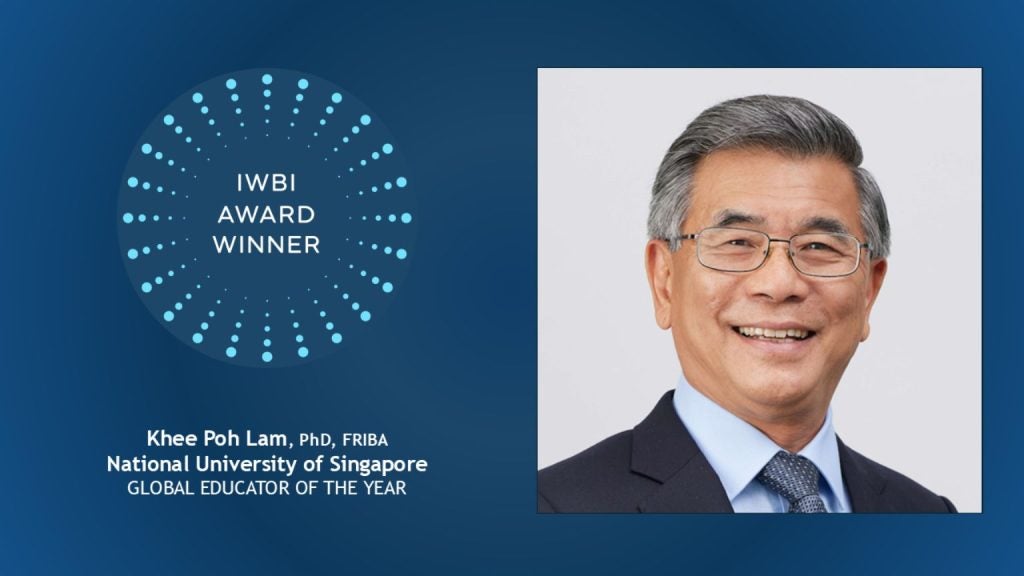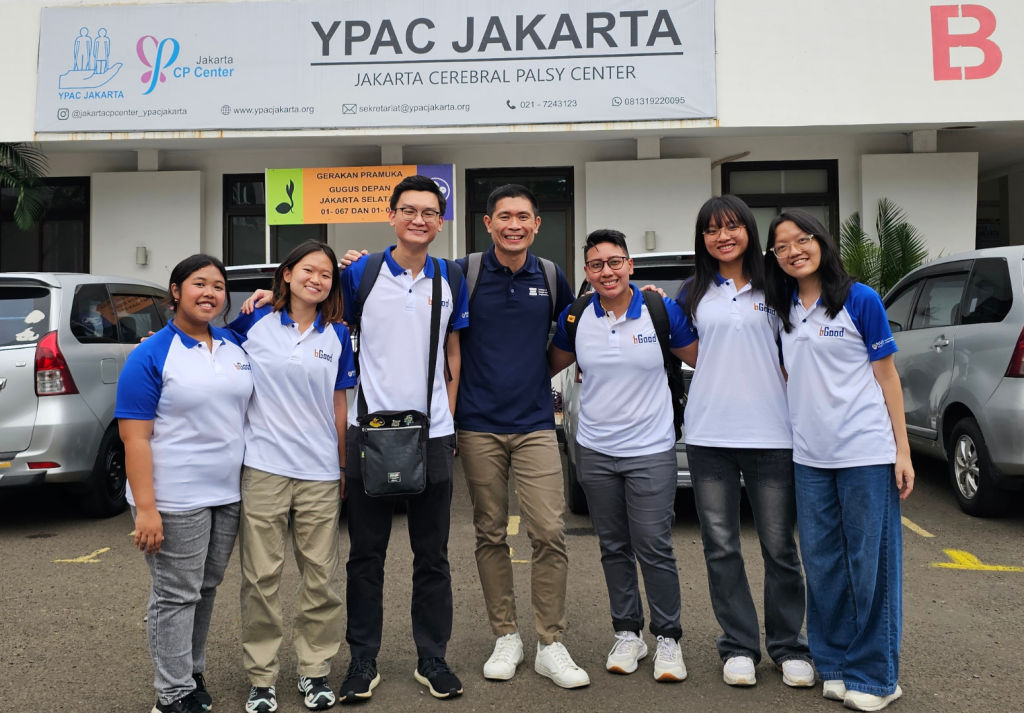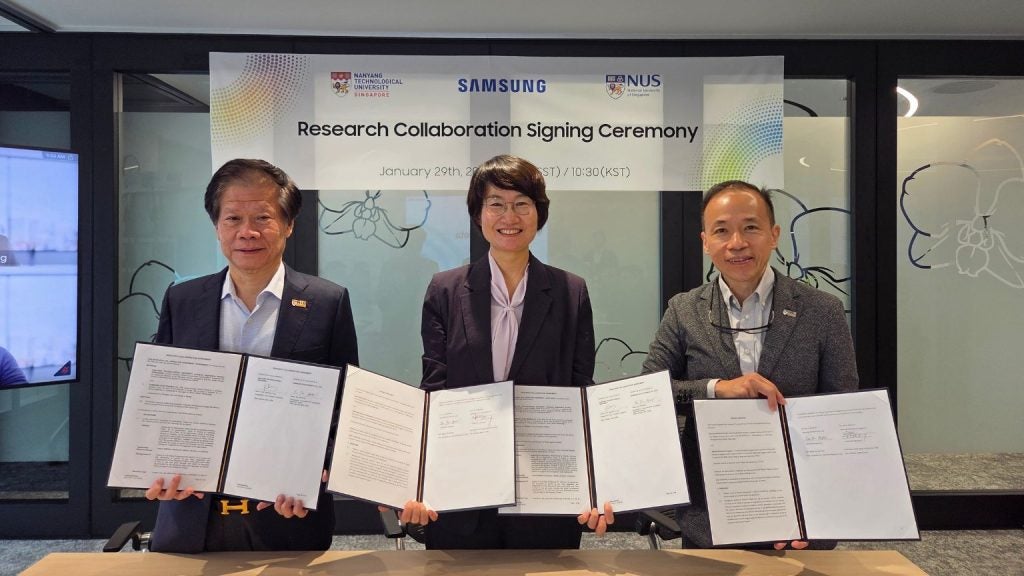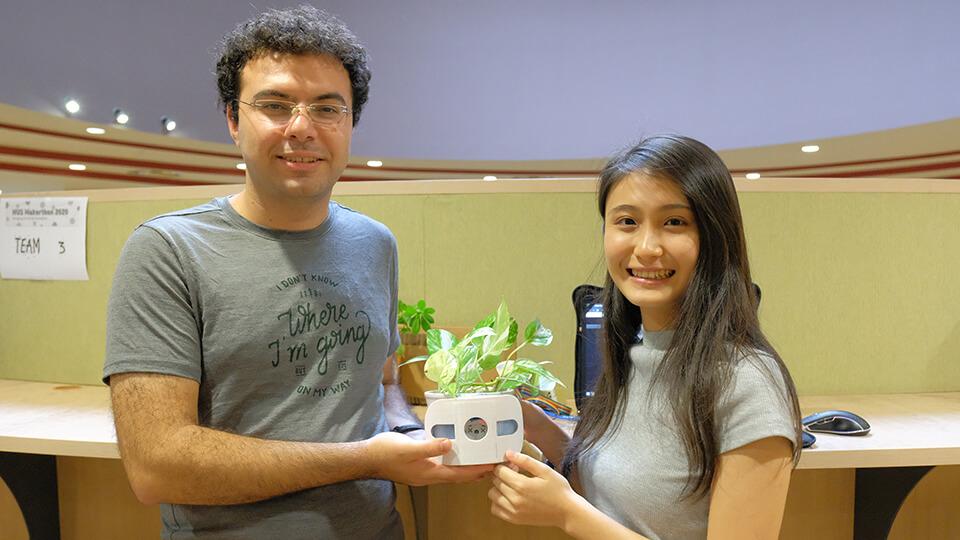
Technology has often been blamed for eroding human connection, but the 16 teams that took part in the NUS Makerthon 2020 harnessed the power of technology to develop innovative solutions to social isolation.
Now in its third year, the event organised by the Office of the Senior Deputy President & Provost, NUS Design and Environment and NUS Computing, and supported by NUS Enterprise, saw projects along the theme of "Designing for Social Connection" that included inter-generational virtual storytelling, meltdown detectors for people with autism, and virtual communities for the elderly.
Some 60 students from various schools and faculties took part in the competition this year to vie for the $5,000 top prize. Each brought unique backgrounds, perspectives and skills to their team's project, which they were given about four weeks to work on.
A digital pet with your plant
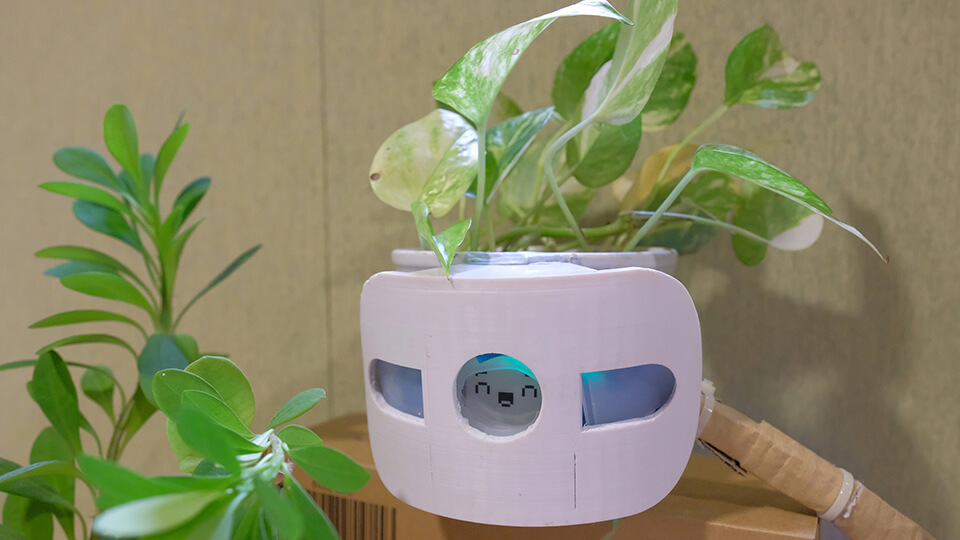
Following a public exhibition at University Town and a presentation to a panel of judges on 6 January, the team comprising NUS Biomedical Engineering PhD student Mr Abdullah Omer Aydar, NUS Electrical and Computer Engineering Masters student Ms Rachel Tan and PhD student Mr Ahmet Selman Kurt emerged as the champion.
Their invention, PETAL, is a lifestyle and health device that can be attached to any house plant to give it a digitalised pet personality. The interface of the device displays a face that changes its emotions based on its interactions with the user. Watering the plant or petting the device will elicit a happy face, while neglect will cause a sad face to appear. The device even speaks to the user, expressing concern when it has not been interacted with over a prolonged period, or saying "I love you" when it's been petted.
"As our team's background is in engineering for medical and healthcare applications, we found that medical non-compliance and the lack of chronic disease monitoring is a huge problem, especially among the elderly," explained Ms Tan.
As such, PETAL comes equipped with an air quality sensor and a pulse oximeter that can generate information useful to asthma or chronic obstructive pulmonary disease patients respectively. The team is exploring the possibility of adding other sensors such as a blood sugar monitor that can benefit diabetes patients or people with heart-related diseases.
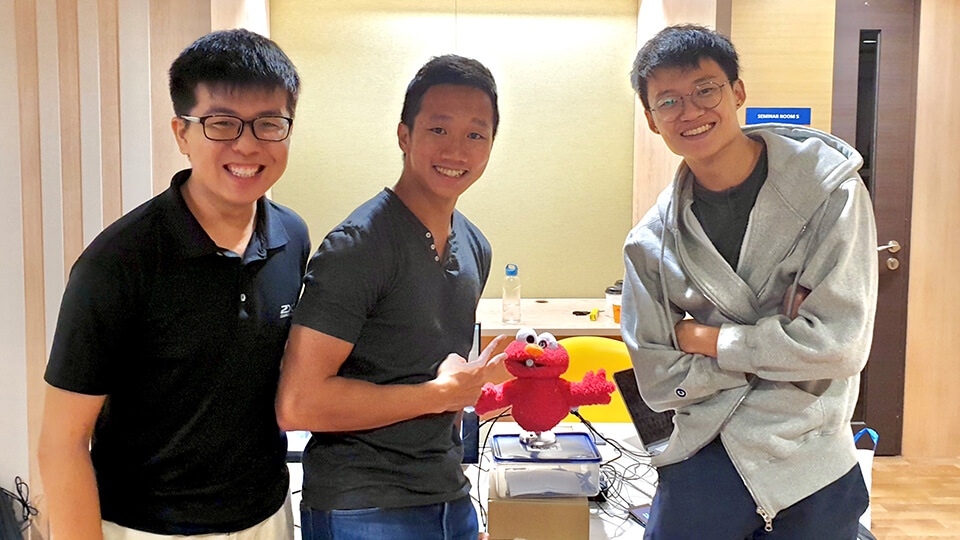
The second prize of $3,000 went to Litmus Box, a video journaling toy that utilises emotion-detecting artificial intelligence technology to help people suffering from depression to regain and improve their social life.
The three third prize winners were KakiCircle, a virtual neighbourhood for the elderly to find likeminded friends in their community; The Gaigai Radio, a two-way radio that allows elderly users to listen to others or broadcast their own activities; and The Playbook, a storytelling device that connects grandparents with their young grandchildren. Each team won $1,000.
At the prize-giving ceremony, NUS Associate Provost (Undergraduate Education) Associate Professor Erle Lim encouraged the participants to continue pursuing their projects. "I'm impressed by what I've seen. Every year we actually have very nice projects that can be taken through to commercialisation. Please think about it because your ideas can actually benefit society," he said.
This article was first published on 10 January 2020 in NUS News at http://news.nus.edu.sg/highlights/solving-social-isolation-technology



